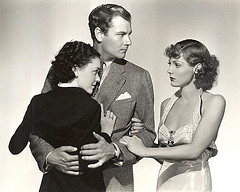The occupation of Wall Street has been heralded as a passionate grassroots movement (now beloved by celebrities) that is spreading nationwide and claiming to reflect America’s non-wealthy 99 percent (even if that same bracket includes most of the wealthy bankers on Wall Street).
To put greed into sharper focus, a nostalgic story of berzerker Borders employees joining a labor union seems apt:
We were unlikely candidates for unionization. There was Carlotta Tendant, a famed drag queen who introduced me to gay bingo. There was Jim, a crackhead who dated my best friend and stole her television set.… We were a bunch of low-wage misfits who joined the union of miners, Pullman car operators, and auto workers.
When you go from unemployment to full-time work, the bridge you cross is called “dumpy sweaters.”
Cher’s still working, and so am I. She’s making movies that prove Christina Aguilera can act, and I’m proofreading at an ad agency. Her name may be up in lights, but I’m the one who’ll make sure it’s spelled right.
And for those new to the protest movement, may we recommend this enjoyable interactive guide to determining your favorite Bob Dylan album.
Oh, and here’s a gallery of William Burroughs’ stuff. We imagine Burroughs would be all in favor of #occupywallstreet. Then again, he’d probably be all for #sharktank, too.

















